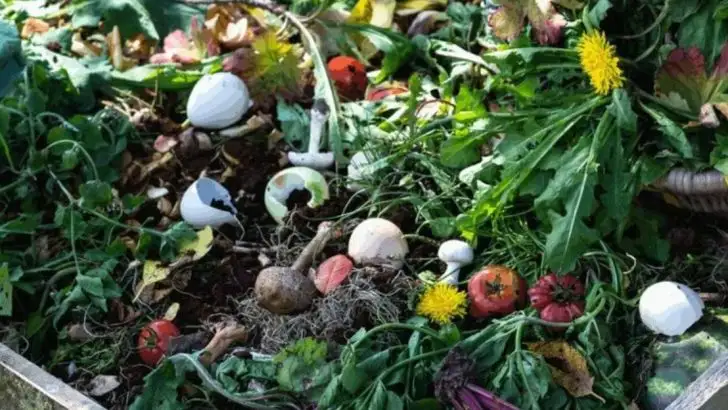A healthy compost pile should have a rich, earthy smell—not a sour or rotten one. If yours reeks, it’s not just unpleasant—it’s a sign something’s off. And in most cases, the culprit is simple: your compost is missing the right balance of browns.
While it’s tempting to keep tossing in kitchen scraps and fresh greens, too much of this “wet” material without enough carbon-rich browns—like dry leaves, straw, or shredded paper—leads to anaerobic conditions and that all-too-familiar stench.
In this article, we’ll explain why the green-to-brown ratio matters, how to fix a smelly compost pile fast, and the easiest ways to keep your compost odor-free, nutrient-rich, and breaking down beautifully.
Brown Materials
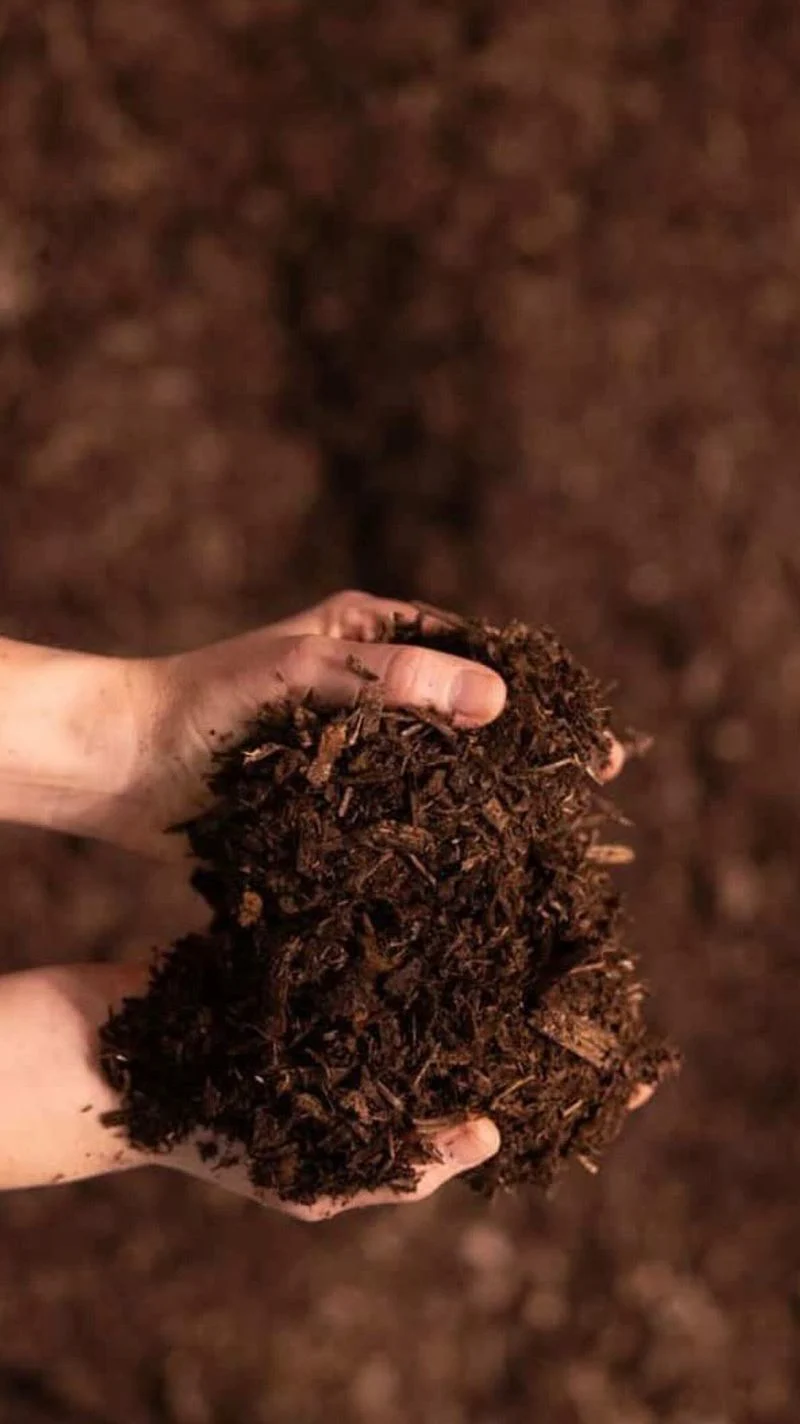
Brown materials, such as dry leaves and twigs, are essential for a balanced compost. They provide carbon, which acts as a source of energy for microorganisms. Think of carbon-rich materials as the bread to your compost sandwich. Without them, your compost can become a sloppy, wet mess that stinks.
These materials also help aerate the pile, allowing oxygen to circulate. This air flow is crucial for preventing anaerobic conditions, which are a major cause of foul odors. A well-aerated pile is a happy pile.
So, next time you rake the yard, remember to add those leaves to your compost bin!
Green Materials
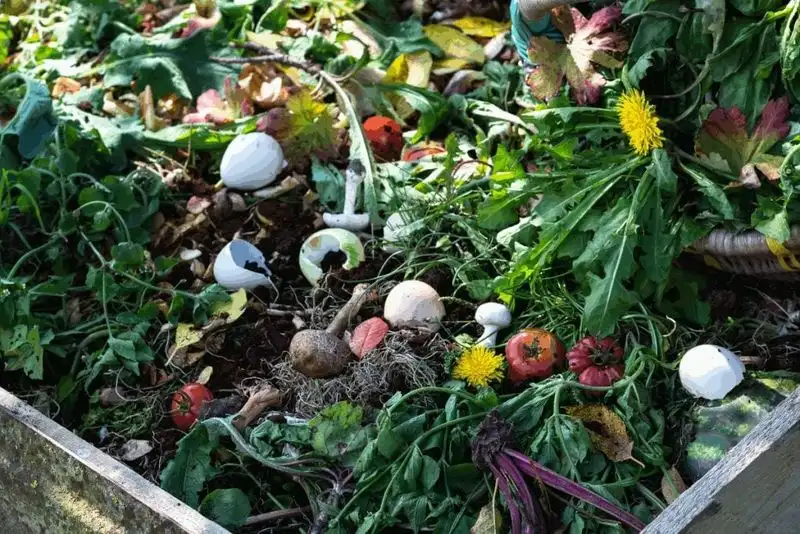
Green materials, like vegetable scraps and coffee grounds, provide nitrogen, which is a vital nutrient for compost microbes. These components speed up decomposition, turning waste into compost faster. Their role is akin to the fuel in a car, propelling the entire process forward.
However, it’s essential not to overload your pile with greens as this can lead to a smelly, slimy heap. Balance is key. The right mix keeps everything working in harmony.
So, when chopping veggies, remember that those scraps are more than waste – they’re compost gold!
Proper Moisture
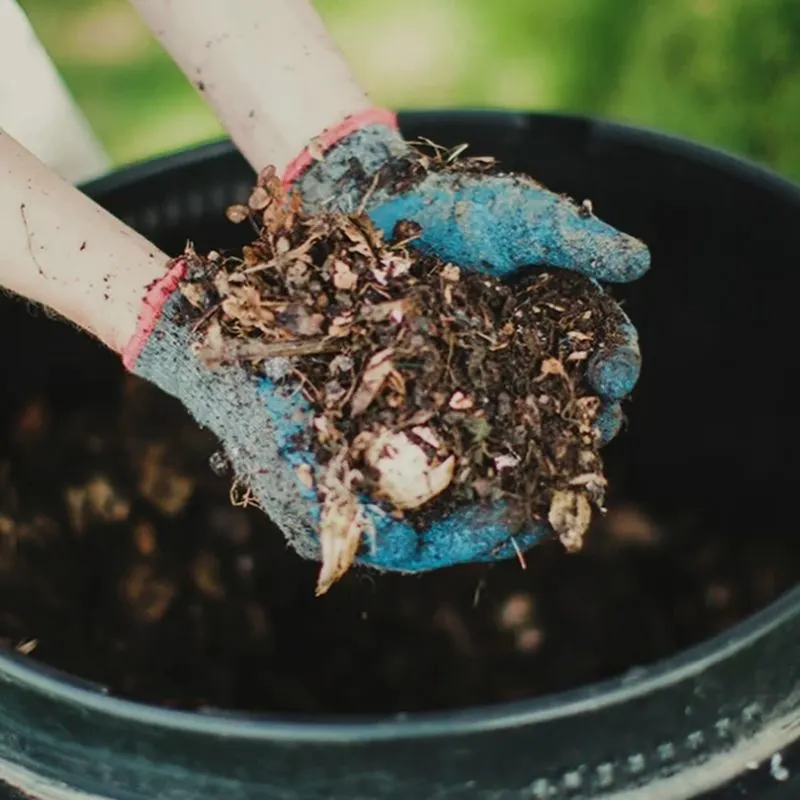
Maintaining proper moisture in your compost is crucial. Imagine baking a cake without the right amount of liquid; the result is either too dry or excessively wet. Similarly, compost needs to be like a wrung-out sponge – damp, but not dripping.
Too much moisture can lead to anaerobic conditions and a pungent smell, while too little can halt the decomposition process. Regularly check your compost and adjust as needed. It’s a simple, yet impactful tweak.
Keep your compost hydrated and it will reward you with rich, earthy goodness.
Aeration
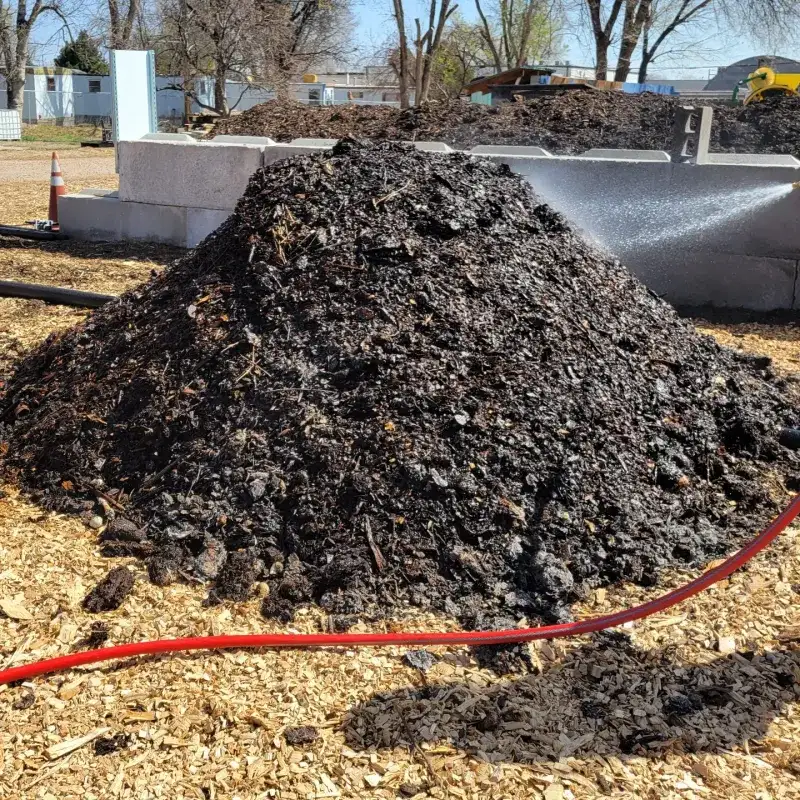
Turning your compost pile introduces air, a critical element in the decomposition process. Imagine trying to bake without preheating the oven. Similarly, without aeration, the process slows and odors flourish.
By regularly turning your compost, you ensure that air circulates and that the microorganisms remain active and thriving. This practice prevents foul-smelling anaerobic conditions.
So grab that pitchfork and give your compost some love! Regular turning is the secret to a fresh-smelling heap.
Beneficial Microbes
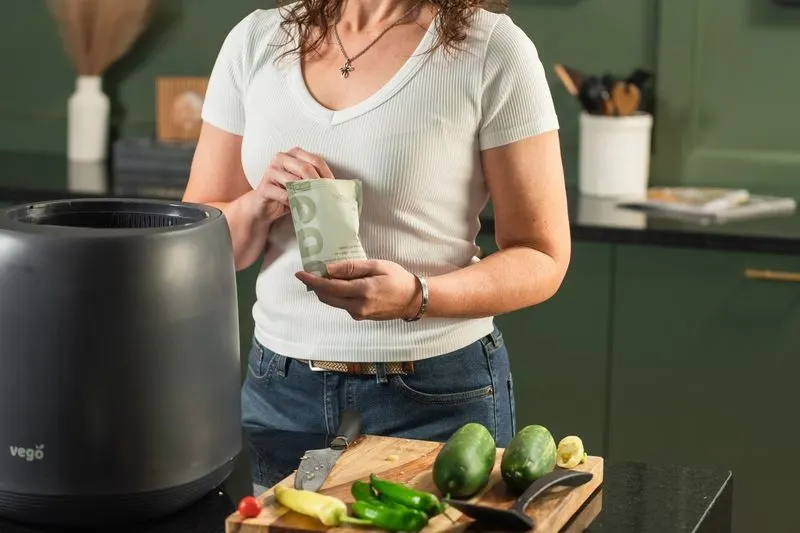
Beneficial microbes are the unsung heroes of the composting world. These tiny powerhouses break down organic matter, transforming it into nutrient-rich compost. Think of them as the backstage crew at a concert – unseen but essential.
Adding a starter mix or aged compost can introduce these microbes to your pile, accelerating the decomposition process. Without them, composting is sluggish and can emit unpleasant odors.
Embrace the micro-world, and your compost will thrive, producing a product that’s beneficial for your plants and garden.

